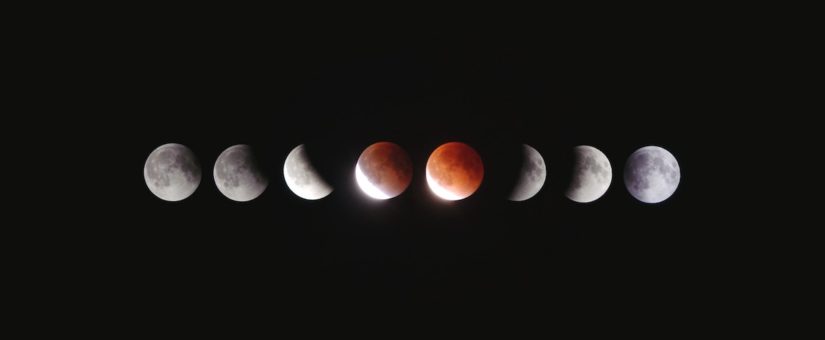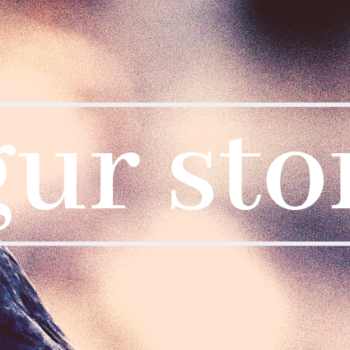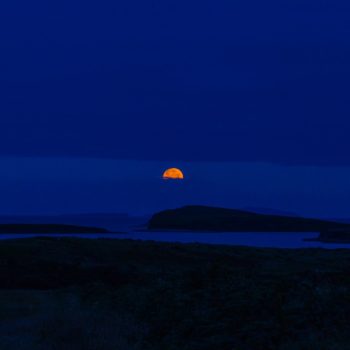
Providing a Gateway: A Conversation on Speculative Poetry, Part 1
- Posted by Augur Blog
- On May 10, 2019
- 0 Comments
- interview, poetry
By Terese Mason Pierre
What is speculative poetry, anyway? As Augur’s poetry editor, this question comes up a lot.
I reached out to my fellow speculative poetry editors—Romie Stott of Strange Horizons and Brandon O’Brien of FIYAH—for their experiences and opinions on the form of literature we edit and love. I wanted to interview them not only as an opportunity to listen and learn but also to critically reflect on my own editorial practice.
In Part 1, we discuss the basics: what makes a poem speculative and how we came to the genre.
What is your experience with speculative poetry?
Romie:
I’ve been a poetry editor of Strange Horizons off and on since 2012. We’re a Hugo-nominated web-only SF magazine which has existed since 2000, and we publish a combination of fiction, reviews, essays, and poems every Monday. We’re donation-funded and ad-free. The exact number of poems we publish in a year varies (we run special issues which can feature different numbers of poems), but is usually between 50 and 60 poems.
We’re a big voice in the space, partly because we can pay reasonably well and partly because we can sometimes get fiction readers who haven’t thought of themselves as poetry fans to click over and discover an author they like. The other influential speculative poetry magazines I can think of tend to be poetry-only and don’t get that crossover. I try to provide a gateway (or a horizon, nudge nudge).
Before I became a poetry editor at Strange Horizons, I’d done time on the editorial staffs of a few other SF publishers—Reflection’s Edge and Drollerie Press—and had written a lot of poems which drew on science and magic realism. You can find some of them online, but there’s not a huge paper trail because I’ve always been more of a performance poet.
Terese:
I started editing speculative poetry when I was an undergraduate student at the University of Toronto. I applied to be the poetry editor of the student journal The Spectatorial (founded by Augur’s editor-in-chief, Kerrie) and was voted in. After I graduated, I applied to be the poetry editor of Augur.
Despite having edited this kind of literature for a few years, I had never written it, or even read much of it. I started writing speculative poetry a few months ago and I really liked it. My peers liked it, too.
Because I am already so steeped in the traditional “literary” Canadian poetry scene, I used the techniques, styles and experiences there, for the speculative poetry that I write. So far, I have a speculative poem in FIYAH magazine, and I hope to submit my poetry to more places in the future.
Brandon:
I came into speculative poetry relatively recently. If I’m being honest, I was writing a few speculative poems when I was in secondary school, scribbling little things and reading them after class, but I didn’t know what they were. I was writing the kinds of poetry I liked to read, for the most part.
Then I got into spoken-word, and that was a large part of what I was writing. I discovered that writing speculative poetry was a real creative option, and that a lot of the poems I read and wrote were speculative. I decided I would make speculative poetry another focus.
What makes a poem speculative? Is it form, content, interpretation, or something else?
Brandon:
I want to say content makes a poem spec, but maybe that’s because everything is content to me. Really, any small number of things make a poem speculative.
A small tweak to form can take a simple love story and turn it into a traipse through realities, while still making those themes interesting and strong.
There are lots of poems that I’d argue seem so distant from genre poetry but are at their core are about exploring present truths through fantastic images.
Terese:
I agree. We know about experimental poetry, visual poetry, or even sound poetry, and speculative content can always be added to those forms.
A poem can also take on a dreamy or untethered tone—exhibited through format and language—but I think this is supererogation on the part of the poet regarding a speculative intention.
Speculative interpretations offer interesting avenues of explorations. I will always interpret mythical poems (like Percy Shelley’s “Ozymandias”) as speculative, as well as katabasis poems (like Alice Notley’s The Descent of Alette), but I have written explicitly speculative poems that have not been interpreted as such.
For example, the planet in the poem was viewed as metaphorical, robotic body-switching a commentary on gender and society, etc. Of course, I cannot tell readers what to think, but I always think about whether readers should be informed that the poem they’re about to read is speculative.
Romie:
A speculative poem can take any form whatsoever, but it has to in some way refer to or engage with the unreal.
Maybe that’s a conversation with the ghost of a lost relative. Maybe it’s a humour piece about fighting a dragon as a metaphor for cleaning the house, or a romantic and sexual awakening in which your lover is a mermaid. Maybe it’s set in a future which may not occur.
There’s a long speculative tradition of anthropomorphizing animals or objects, and we extend that aspect of the genre into science poems. If it’s a poem which humanizes science or math, I count it as speculative.
Since our magazine is online and not bound to what can be printed on a piece of paper, we’re able to publish form-breaking stuff: poems which are transforming hypertext, poems which are games, poems which disappear as you read them. In those cases, the form itself is a speculation about what a poem could be, as pages become screens.
What I’m looking for is this: do I think readers of science fiction and fantasy would connect with this poem in the context of this magazine?
If the answer is yes, then the answer is it’s speculative. I know it when I hear it.
In this part of the conversation, Romie, Brandon and I shared our views on what we think speculative poems are, conceptions which are important for our work as editors, and shaping what we think our readers want to read. But there’s more! Part 2 of this conversation will be posted next week.
In the meantime, what do you think makes a poem speculative? Let us know in the comments.
Bios:
Brandon O’Brien is a poet, writer, critic and facilitator from Trinidad and Tobago. His work has been published in Uncanny Magazine, Strange Horizons, Reckoning, People of Colo(u)r Destroy Fantasy!, and New Worlds, Old Ways: Speculative Tales from the Caribbean, among other outlets. His work has been shortlisted for the 2014 Alice Yard Prize for Art Writing, and the 2014 and 2015 Small Axe Literary Competitions. He is also a performing artist with The 2 Cents Movement, and the poetry editor of FIYAH Literary Magazine. Visit his website at: www.brandonobrien.space
Romie Stott has been on the editorial mastheads of Reflection’s Edge, Drollerie Press, and the Hugo-nominated Strange Horizons. Her short story, “A Robot Walks Into a Bar…” won the 2012 Intel/Arc Tomorrow Project “Future Pleasures” Prize, and her historical fantasy feature screenplay Ratcatcher was a top 10 finalist in the 2012 American Zoetrope Screenplay Competition. As a narrative filmmaker (working mainly as Romie Faienza), Romie has been a guest artist at the Institute of Contemporary Art (Boston), the Dallas Museum of Art, and the National Gallery (London). She is a regular contributor to The Billfold and Atlas Obscura. Visit her website at: www.romiesays.tumblr.com
Terese Mason Pierre is a writer, editor and organizer. Her poetry and fiction have appeared in multiple online and print journals, including Bad Nudes, FIYAH, Cosmonauts Avenue, and Train. She is the poetry editor of Augur Magazine and co-organizes Shab-e She’r, and Slant, both reading series in the city of Toronto, where she lives and works. Visit her website at: www.teresemasonpierre.com




0 Comments